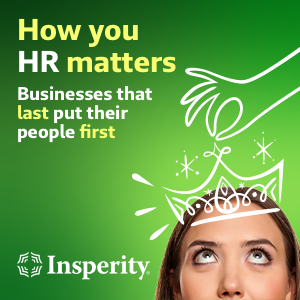
Exhibit explores how NJ women won, then lost, right to vote

If history teaches nothing else, it's that there are winners and losers.
And sometimes, the losers become winners and the winners become losers.
At the National Constitution Center, just across from Independence Hall in Philadelphia, visitors can learn "How Women Won the Vote."
At the Museum of the American Revolution, just a few short blocks away, visitors also can learn "When Women Lost the Vote."
And it's no surprise that an often overlooked chapter in history is centered in New Jersey, an often overlooked state.
Long before 1920, when women won universal suffrage in the United States, women in New Jersey were voting: The state's Constitution, originally written in 1776, noted that "all inhabitants of this colony, of full age, who are worth fifty pounds … and have resided within the county … for twelve months" could vote.
The impetus for that language? Counties in South Jersey, heavily influenced by Quakers and Dutch settlers, which granted their women suffrage.
The state Legislature in 1790 went a step further, changing the wording of the law to "he or she," spelling out clearly that women, including free Black or African women who met the financial and residency thresholds, could vote.
"That showed that the earlier language was not an accident," said Adrienne Whaley, director of education and community engagement. "It was intentional."
Though married women could not own property — all their assets legally belonged to their husbands — single and widowed women could, and thus could vote for what Whaley called "a brief, shining moment."
And vote they did, at least until that right was taken from them in 1807 in the midst of a political dispute.
"When Women Lost the Vote" explains how and why that happened, but it also explores the role of women in Colonial and Revolutionary-era America through artifacts and information woven into its regular exhibits.
It also examines, through a historical lens, questions that resonate today, Whaley said: Questions about voting rights and disenfranchisement, about who gets to vote, how and by whom that right is granted.
"There were accusations of voter fraud and voter suppression, just like there are today," Whaley noted, rumors of men dressing as women to cast multiple votes and of husbands and fathers forcing their wives and daughters to vote as the men wished, not as the women did.
The exhibit, which includes several items on loan from the Bergen County Historical Society, examines the role of women in the electorate, and how Black voters were viewed, then and now.
Whaley noted one scenario in which Black people, and Black women in particular, were symbolic of the new nation's conflicting views on equality and freedom: A Black person might be at a polling place to vote — but he or she might also have been brought to a polling place by a master or mistress as proof of assets worth 50 pounds or more.
The museum, open for limited hours (10 a.m.-5 p.m. Thursday-Sunday), is limiting visitors to 360 per day and masks and social distancing are required. Visitors can take part in guided tours (by request) or audio tours.
Like nearly everything else, the pandemic has affected the exhibit: Some of the figures representing historical figures were held up when the New York studio that produces them was closed for months in the spring and summer.
Theatrical performers who'll channel Elizabeth "Mumbet" Freeman (an enslaved Massachusetts woman who successfully sued for her freedom) and Rebecca VanDike (a New Jersey woman who, in a fashion many 21st-century homeowners might envy, argued successfully that, as a married woman who legally had no property, she also had no legal obligation to pay property taxes) will be masked.
Among the most impressive artifacts on display is an original letter from Abigail Adams, wife of John Adams, that's been cited countless times as one of the earliest arguments in favor of women's suffrage, in which Mrs. Adams famously implored her husband, "Remember the ladies" as he and other Founding Fathers forged a new nation. (John Adams, of course, dismissed his wife's concerns, and it took American women another 144 years to achieve universal suffrage.)
Original copies of the New Jersey state Constitution are on display, labeled by year and by import: "1776: The Revolutionary 'They,'" "1790: The Revolutionary 'She,'" and "1797: The Revolutionary Edit," which changed the language surrounding property ownership to allow more women to vote.
A ballot box from the early 19th century used in Deptford Township bears the words "Vox populi," Latin for "voice of the people." A tavern sign — taverns were early voting sites — bears the visage of Thomas Jefferson, a not-subtle signal of the tavern owner's political allegiance.
Voter rolls show women tended to vote in groups, but Whaley said it was unclear why: Was it a matter of enthusiasm, with women so excited to vote they brought their sisters and friends along? Or was it a question of safety, with women going in groups to protect themselves from being harassed on the way to the polls?
A political compromise between the two main parties of the time, the Democratic Republicans and the Federalists, codified voting as a right granted only to free white men, stripping all New Jersey women and free Black men of their voting rights.
How did women react? Initially, if they did, there doesn't seem to be much evidence of anger or outrage, Whaley said. Perhaps the novelty of democracy meant that people still viewed voting as a privilege, not a right, and white men held most of the privilege in that society.
Perhaps women viewed politics as a dirty business, best left to men. Or it could have been even more mundane: Voting meant traveling to a polling place, taking time away from hearth and home and all the work women did there. New Jersey had passed a gradual abolition act in 1804 and Black people may have been too worried about its tenuousness to press for enfranchisement.
Women turned to education, taking it upon themselves to prepare the next generations for civic life. They watched the suffrage movement in England.
"They were not allowing themselves to be written out of the story," said Whaley.
The exhibit takes a look toward the women's suffrage movement in the later 19th century, and notes that prominent suffragists including Susan B. Anthony and Elizabeth Cady Stanton looked to New Jersey's example as they waged their battle.
In fact, in 1880, Cady Stanton, living in Tenafly, Bergen County, tried to vote, but was turned away.
She had a message for the inspector, who told her there was no precedent for women to vote: "On the sacred soil of New Jersey, where we now stand," she told him, "women voted 31 years, from 1776 to 1807."
Go: "When Women Lost the Vote: A Revolutionary Story" is at the Museum of the American Revolution, 3rd and Chestnut streets, Philadelphia, through April 25. Tickets are $21 for adults, $18 for seniors, students, active and retired military, and $13 for children 6 and older. Tickets are available online at www.amrevmuseum.org/ or by calling 215-253-6731.
Phaedra Trethan has been a reporter and editor in South Jersey since 2007 and has covered Camden since 2015. She’s called South Jersey home since 1971. Contact her with feedback, news tips or questions at ptrethan@gannettnj.com, on Twitter @CP_Phaedra, or by phone at 856-486-2417.
Additional Info
Media Contact : Phaedra Trethan, Cherry Hill Courier-Post | https://www.courierpostonline.com/staff/4395408002/phaedra-trethan/
Source : https://www.courierpostonline.com/story/entertainment/2020/10/26/philadelphia-exhibit-explores-how-women-won-then-lost-right-vote-american-revolution-






